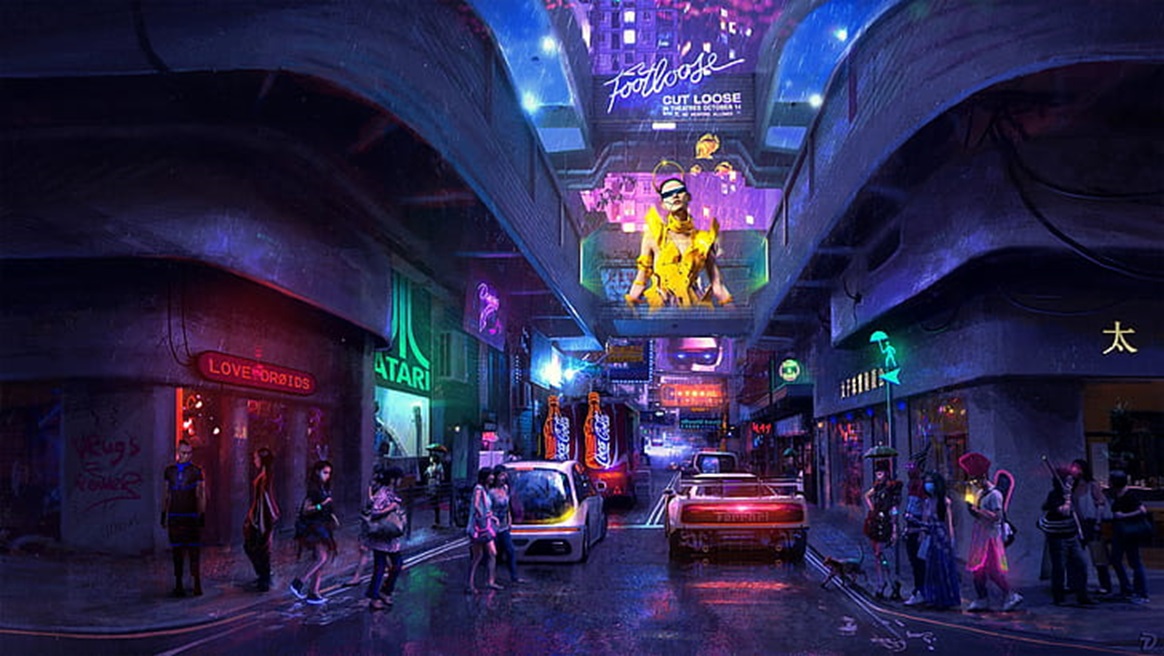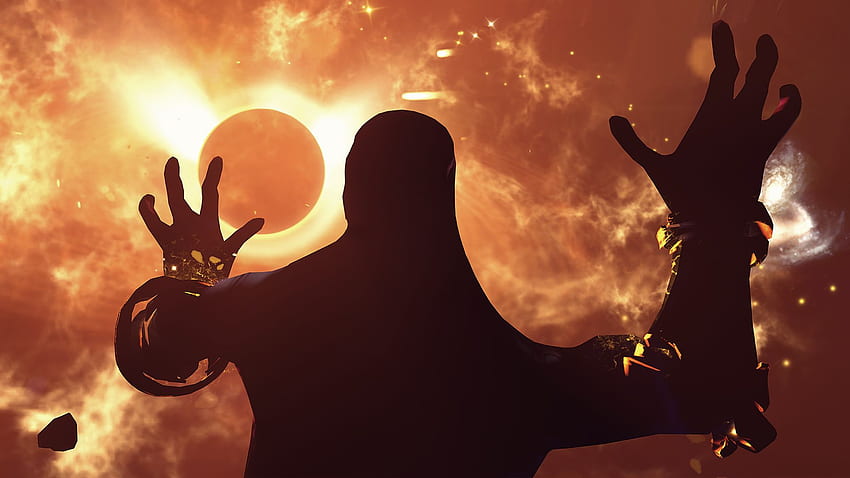Things don’t really exist as they seem to us to exist – they just exist as suppositions that we choose to treat as real. This is therefore a very ‘light and airy’ kind of a situation – there is no heaviness, no aggression, no forcefulness, no kind of ‘necessity’ in it at all. This is what the process of thought is all about – making suppositions, making the decision to treat them as real (i.e. not suppositions at all) and then erasing any evidence that such a decision was ever made. This process happens so very quickly (practically instantaneously it seems) that it might as well just not exist. Actually, as far as we are concerned, the process doesn’t exist – we skip right ahead to the ‘output’ stage. The out-put stage is all we care about, all we want to know about… This is similar (if not quite the same) to what Guy Claxton (1994. p 3) is saying here in this passage taken from Noises from the Darkroom:
Contrary to popular opinion, the human mind is a closed book. The room behind the eyes is forever dark. No access is possible, either by thinking or via the senses – for thoughts and experiences are the produce of this obscure factory, not glimpses of its operation. As with the manufacture of Cointreau or Tabasco, what goes on behind the scenes is a jealously guarded trade secret. All we get to do is taste the concoction; to the world of the concoctor we are not privy at all. In the mind feelings are fabricated, thoughts are marshalled, perceptual pictures are painted. But of the painter and the engineer we have no idea.
When we have no interest in the process of thinking and what it entails then this of course puts a very different perspective on things from the ‘light and airy’ one we started off talking about. When we make ourselves oblivious to the actual process of thought, when we have no interest at all in how our thoughts got there, only in the fact that they are there (and that they do say this and that) then the situation we find ourselves in (as a result of our incuriosity) is no longer light. On the contrary, everything has now become very concrete, everything has now become very solid and opaque and downright heavy. It is as if the world were made of concrete blocks – dense blocks of substance that can never be questioned, never be resolved into anything else, anything less solid, less blocky, less opaque. It’s entirely ‘non-metaphorical’. It’s ‘super-literal’ – the concrete block is the concrete block and that is that.
What we’re really talking about here are rules therefore. The essence of a rule is that it can’t be resolved into anything else – a rule is final, non-negotiable. A rule is an absolute and absolutes are what we build the world out of. Absolutes are all around us – we come up against them all the time. They are the world, as far as we are concerned. But the whole point of what we’ve been saying is that there are no absolutes really – we manufacture them ourselves, we obtain them by treating suppositions as if they were real, and then forgetting that we have done any such thing. We obtain them by making guesses (as Robert Anton Wilson says) and then making out that our guesses are the same thing as verified reality. We obtain them by taking no interest whatsoever in the process of thought, and then ‘skipping ahead’ every time to the final output, to the product of the thinking process.
The suggestion that this is what we do, the suggestion that this is how we produce the world we live in, is entirely unpalatable to us. The suggestion is met with blank faces – it doesn’t fit in with our way of understanding things. This essential process – the process of thinking in which airy suppositions are treated as concrete facts, and the decision to do so then erased from the record – is not something we come across in the text books on the reading list for any course in psychology, even though nothing else that might be taught on a psychology course means anything if we omit this! To omit to say that we live in a world which is made up entirely of ‘the output of the rational engine’ is to collude in the manufactured illusion that this output is synonymous with actual reality. We omit it because we cannot see it and we cannot see it because we’re looking at it from the point of the rational intellect (or to express this another way, what happens in mainstream psychology is the rational output gets to study the rational output…!)
Robert Anton Wilson talks about how we turn uncertainty into certainty by ‘making assumptions and ignoring that we made them’ in his book Quantum Psychology and in his discourses on Maybe Logic, David Bohm talks about it in Thought as a System, and Carl Jung is quite explicit on the subject, stating that through his over-enthusiastic adaptation to the rational faculty modern man
…slips imperceptibly into a purely conceptual world where the products of his conscious activity progressively replace reality.
Mainstream psychology however couldn’t have less interest in this sort of ‘deconstructionist’ approach. The discipline doesn’t wish to deconstruct rationality because it doesn’t wish to deconstruct itself. The dominant discourse on this planet considers a psychological approach that puts the cart behind the horse (instead of in front of it) as not even worth mentioning, not even in passing. Even the decision not to mention it is considered not worth mentioning…
The reason for this fantastic bias is not particularly hard to see – we don’t want to face the possibility that our absolutes are not absolute after all. We want to live in a world where radical uncertainty is NOT the ultimate reality! Quite the reverse is true – we are 100% committed to living in a world that is the product of our thinking processes, and if living in this world means being totally and utterly incurious about the process by which this world came into being then we are more than willing to pay this price. This attitude corresponds to what Chogyam Trungpa calls ‘intelligent stupidity’, which has to do with following the rules of the game no matter what:
The animal realm is associated with stupidity: that is, preferring to play deaf and dumb, preferring to follow the rules of available games rather than re-define them. Of course, you might try to manipulate your perception of any given game, but you are really just following along, just following instinct.
Intelligent stupidity means therefore being scrupulously careful to ‘stay inside the box’. It means acting as if the ‘inside of the box’ is the only reality there is, it means acting as if there is no outside of the box. This really is the most preposterous of attitudes – it is the attitude of someone who only wants to look the one way and pretends that the other way doesn’t exist. If just one person does this then we can easily see that the person concerned ‘has a problem’ but when a whole culture does it, when a whole world does it, then this is another matter entirely. In this case it becomes extraordinarily difficult to see that this utterly bizarre thing is going on. And if we do see it and no one else sees it (or if no one else admits to seeing it) then in all probability we will go along with the consensus view and decide that the problem must be with us for imagining that there is something strange going on.
Whether we admit to it or not this attitude of only ever looking at what lies inside the box and pretending thereby that the bigger picture doesn’t exist is an absurdity. It is a staggering absurdity, an astonishing absurdity, a monumental absurdity. We are stubbornly set upon living in a world that is made up of our ‘rational output’ no matter how dreadfully clunky and concrete this world might be. We don’t care – we will put up with it, we will make a virtue of it…
What we’re really talking about here is of course fear – all of this business comes down to fear. It is ‘fear by any other name’. Fear concretizes – this is how fear works, this is what fear does. Fear builds walls, and then hides behind them. All of this is just fear – there is no more to it than this. We could of course ask what there is to be so afraid of. What is there to be afraid of in radical uncertainty? What is there to be afraid of in ‘lightness’ – what is there to be afraid of in the absence of oppressive, tyrannical, unquestionable rules? Surely if we had any sense it would be the freedom-denying, life-denying rules that we would be afraid of, not the absence of them?
There is an answer to these questions but it is a somewhat ‘tricky’ one. The point is that ‘who we take ourselves’ to be is a product of our one-sidedness, a product of the thinking process which works by ‘making suppositions and then treating them as if they were concrete facts’. The very concrete, heavy and opaque sense of being this self, being this identity, being this ‘me’, is created by the thinking process which we don’t want to have any insight into, the process that takes place out of sight in the ‘obscure factory’ of the mind that Guy Claxton talks about.
The concrete sense of identity is created by ‘only seeing things the one way’; it is created by our only ever paying attention to the inside of the box, and so on. We have to do this if we are to have the benefit of being the self that we understand ourselves to be. I create myself via my own immensely stubborn one-sidedness and so this explains why it is I am being so extraordinarily obstinate about it, why it is that I am invested so much in it.
This is the reason why we are so afraid of ‘looking outside of the box’ (or admitting that there is a box). This is the reason why we are too scared to stop playing our game of ‘intelligent stupidity’ and take a look at the bigger picture for a change. This is why we are so dead set on living in the world of our own rational output and ignoring the fact that this is what we are doing. Running away from fear creates one-sidedness and one-sidedness creates the self. Acting on fear is what creates the self – fear is the self and the self is fear!
The tricky thing about this is that we are ourselves the output of the rational processor, just as the world we live in is. This being the case, it is no wonder we over-value rationality in the way that Jung says we do! It is no wonder rationality is God for us. I am struggling as hard as I can to live out my life entirely within a world that is made up of my own rational output and to convince myself at the same time that it isn’t my own rational output, whilst I myself am a construct of this same ‘rational output’! This is the ‘strange-loop’ that I am caught up in, and it is a strange-loop that forever denies our own true being. What kind of a bizarre scenario is this? And yet we can’t for the life of us see this. Or we see it only on very rare occasions, and these we will probably want to suppress because it is much too frightening for us. And yet seen another way, this way of seeing it is not frightening at all. Actually everything we have so far said has been expressed much more simply and elegantly by Edgar Allen Poe in poetical form when he says:
All that we see or seem,
Is but a dream within a dream. …
Image credit – Alex Pardy, on nintendowire.com






